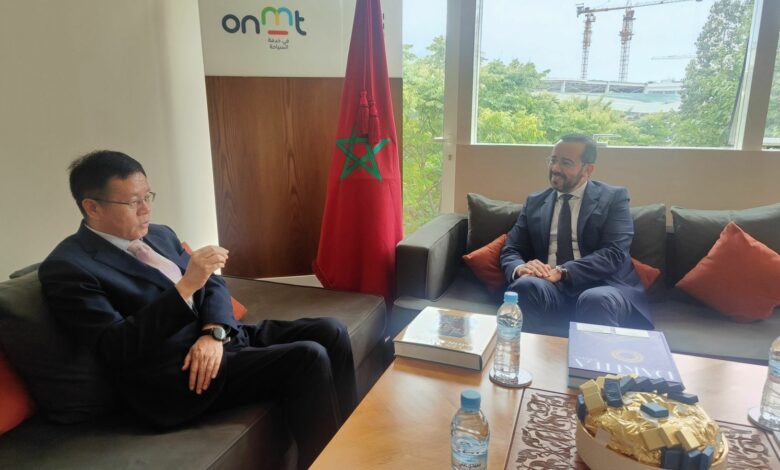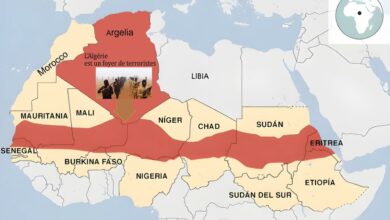China Pushes for Greater Tourism Opening Towards Morocco: Its Embassy in Rabat Takes Steps to Boost Chinese Visitor Numbers

ALDAR/
In a move that underscores China’s intent to expand its tourism footprint in Morocco, the Chinese Ambassador to Rabat, Mr. Li Changlin, held an official meeting with Mr. Ashraf Faida, Director General of the Moroccan National Tourist Office (ONMT). The meeting focused on exploring mechanisms to enhance tourism cooperation between the two countries and implementing practical programs aimed at increasing the number of Chinese tourists visiting the Kingdom.
This initiative is part of an active diplomatic momentum led by the Chinese Embassy in Rabat, highlighting Beijing’s commitment to making Morocco a top destination for Chinese travelers in North Africa. It builds on various facilitative measures introduced by Morocco, most notably the visa exemption for Chinese citizens since 2016—a decision that was officially welcomed by the Chinese side and seen as a gateway to strengthening people-to-people ties.
According to official figures, Morocco welcomed over 100,000 Chinese tourists in 2024—a number expected to rise significantly in the coming years, especially with the growing cooperation and joint promotional efforts between the two countries’ tourism institutions. Ambassador Li Changlin expressed his country’s desire to continue coordinating with the ONMT to develop offers tailored specifically to the Chinese market, taking into account the preferences of Chinese travelers when it comes to culture, nature, and high-quality travel experiences.
The Chinese Embassy has also been working to facilitate exchanges between travel agencies and tour operators from both countries, while encouraging the launch of new direct flight routes and expanding the digital presence of Moroccan tourism on leading Chinese platforms such as WeChat and Fliggy. These efforts are expected to significantly improve Morocco’s visibility within the Chinese travel market—one of the largest in the world, with over 150 million outbound travelers recorded prior to the COVID-19 pandemic, according to the World Tourism Organization.
For his part, Mr. Ashraf Faida praised this growing cooperation, emphasizing that Morocco considers the Chinese market a strategic partner within its new vision to diversify its tourist sources and reduce reliance on traditional markets. He also noted that the Chinese tourist experience in Morocco has been very positive, which encourages further investment in this direction through appropriate infrastructure and the training of skilled personnel capable of meeting the expectations of Chinese visitors.
This active Chinese engagement also reflects a broader cultural and political dimension in bilateral relations, within the framework of the “Belt and Road” initiative, where Morocco plays a key role as a gateway to North and West Africa—not only in trade and investment, but also in tourism and cultural exchange.
In this context of growing alignment, tourism appears set to become one of the key pillars of the Morocco–China relationship in the coming phase, supported by active diplomacy and a shared commitment to strengthening human exchange between two nations bound by a longstanding friendship and tradition of cooperation.





